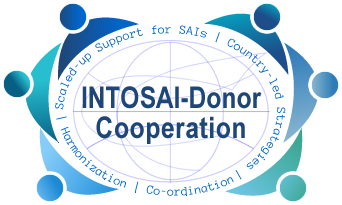National Audit Chamber Strategic Change Project 2019-2025
IDI, the Office of the Auditor General of Kenya and AFROSAI-E jointly support the National Audit Chamber (NAC), the SAI of South Sudan, in implementing key strategic priorities for 2020-2024. This includes support to ongoing audits by NAC, a new legal framework, stronger internal governance, new ict-systems, HR-management, professional development and training, stakeholder engagement and communication and general coordination with partners. Funding is provided by the Norwegian embassy (MFA Norway) in Juba. SAI Norway provide in-kind resource persons.
SAIs connected to this project
- South Sudan
How the project was initiated
Request by SAI Gender Relevance
Significant (marked 1)
Has the project/activity as an objective “the strengthening of the SAI Institutional Framework/ Independence”?
Principal objective Contact person: Beneficiary SAI/Region/Committee
Dr. Justin Droko, Deputy Auditor General, National Audit Chamber, South Sudan <[email protected]> Source of funding
Government of Norway Other Source of funding
Contact person: Provider of support
Ojja Bosco Stephen Kidi, Norwegian embassy, Juba <[email protected]> Implementing agency(s)
INTOSAI Development Initiative (IDI), AFROSAI-E and OAG Kenya Contact person: Implementing partner(s)
IDI: Godwin Matte <[email protected]> AFROSAI-E: Wynand Wentzel <[email protected]> OAG Kenya: Anthony Goko Waiganjo <[email protected]> Type of support
Stand alone project Support modality
Peer to Peer support Support categories covered
Is support based on beneficiary SAI/INTOSAI region Strategic Plan?
Yes Any other information
Why this project?
South Sudan is in a deep economic, political, security and humanitarian crisis. The Revitalized Peace Agreement (R-ARCSS) of September 2018 provides for a number of steps to be taken to improve the situation, hereunder how to strengthen public financial management and the National Audit Chamber (NAC). The NAC is a key oversight institution and has a crucial role in promoting better governance in South Sudan through various audits of public funds and institutions.
NAC has developed a Strategic Plan (SP) for 2019-2024 that clearly aims to meet the obligations of the R-ARCSS and for it to generally contribute to better public financial management through relevant and high-quality audits. This includes expanding the audit coverage of both Central Government as well as parastatals, the states and local government.
NAC, AFROSAI-E and IDI has had a bilateral cooperation since 2017, where peers from SAI Kenya, Norway and Uganda have played an important role in addition to IDI and AFROSAI-E staff (see key documents and evaluation here). There has been a good cooperative spirit and reasonable progress in the challenging situation 2017-2019. On this background, the parties agreed to enter a second phase of the Peer-support project – the “NAC Strategic Change project 2020-2024”. This was formalized in a Cooperation agreement signed in August 2019.
What are the project objectives and expected results?
The overall objective of the project is to enable NAC to successfully implement its strategic plan. The result framework is therefore based on NAC’s Strategic Plan 2019-2024. See below for an overview of the Strategic Plan.
In line with NAC’s mission, the potential impact of the project is greater compliance with laws and regulations and stronger public financial management in South Sudan, which ultimately leads to better government services and improvements of the living conditions of citizens. The project shall as such contribute to Sustainable Development Goal 16 (Peace, Justice and Strong Institutions) especially, by building a more effective, accountable and inclusive Supreme Audit Institution in South Sudan.
What are the main project activities?
The overall implementation strategy is to align and organize the project in alignment with NAC’s own strategic plans and priorities. This means the project components are NAC’s own strategic outputs and focus areas, supplemented by a project management component:
- NAC Strategic outputs (including audit reports)
- Strengthen NAC Independence
- Enhance the Quality and Impact of Audit services
- Strengthen Internal Governance System and Structures
- Human Resources developed and Staff Welfare improved
- Strengthen Advocacy and Stakeholders Engagement
- Project management and coordination of other partners and projects
- Use of regional resources for HR-management, such as competency framework, HR-policies, recruitment practices developed by AFROSAI-E
- Develop and implement professional development programme. This may be linked to the African professionalization initiative in AFROSAI-E or the IDI professionalization programme.
- Coordinated, systematic and selective training of staff. This will be delivered by replicating some of SAI Kenya’s ongoing trainings in Juba.
